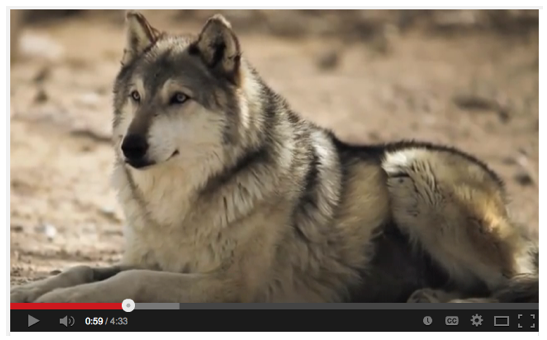“The wolf doesn’t care what the sheep think of him…”
I have long since forgotten who gave me this little nugget of wisdom but it is a piece of advice that has stuck with me for many years now. When I originally heard the phrase it was within a sporting context. To me it meant, “Don’t be afraid to dominate, to win and to win convincingly. Don’t ever apologise for trying to be the best.”
Dominance, aggression and ruthlessness are all attributes most of us associate with wolves. The saying itself could be perceived as sharing the same qualities.
Yesterday my son showed me an interesting video which reminded me of that saying yet which allowed me to look at it from another angle. Take a look at the video below, and consider the actions of the wolves from a collaborative and harmonious perspective. When you watch it with the ‘big picture’ in mind, I wonder if you’ll notice any of the same messages I did?
 In our work with teams one of the most prevalent challenges we face at Team Alchemy is the question “how do we raise the performance of our partner/ supplier/ colleague” to a standard we are happy with?”
In our work with teams one of the most prevalent challenges we face at Team Alchemy is the question “how do we raise the performance of our partner/ supplier/ colleague” to a standard we are happy with?”
Often the best approach is actually to look at the question from a different angle and to examine our own actions rather than focusing on those of our stakeholders. In doing so the query then becomes “can our team perform our role so well that it allows teams connected to us to do the same?”
It is wise to control the controllables, to keep our focus in our own back yard and make sure that our own team is performing its role to the highest possible standard.
At Team Alchemy we call this being aware of the ‘Direction’ segment of our model. At its best it means a team is clear on its purpose, has a commitment to execution and works with an action orientation. A team operating this way simply performs their role as well as they possibly can, and in doing so both sets the expectation and gives the freedom for collaborating teams and stakeholders to do the same.
‘Direction’ and the Yellowstone Wolves
Our concept of “Direction” has a direct relationship to the wolves in the video and the effect they have on their ecosystem in Yellowstone Park.
When they were reintroduced to Yellowstone Park after an absence of some 50 years, the wolves didn’t waste any time. They simply set about doing what they do best – they assumed their place in the natural order of things and started to feast on the over abundance of deer in the region. They didn’t call meetings to request that someone plant more trees, or wonder whose job it was to get the beavers back working in the streams. They simply performed their role to the best of their ability.
What collaborative lessons can we learn from the Yellowstone Wolves?
1. Give ‘trust unearned’ to your key stakeholders
In the video once the deer population began to be culled by the wolves the valleys were given a chance to flourish. They began to regenerate and had a chance to express their natural way of doing things.
Similarly, when we give our partners/ suppliers/ colleagues space and trust that they will perform their roles to a high standard they also enjoy the space and freedom. Self-expression comes to the fore, and results are not only of a high standard but they become fulfilling and satisfying for all involved.
2. An ‘action orientation’ can be contagious within organisations
‘Action orientation’ happens “when team members are committed to decisions made, then adhere to decisions and do not relitigate them once they are made”.
Just as there was a flow-on effect in the Yellowstone ecosystem (as the birds, beavers, etc started to flock to the new trees in the) when work teams in an organisation see other teams with a committed ‘action orientation’ they feel the confidence and willingness to undertake the same attitude.
3. ‘Clarity and alignment’ allows everyone to get on with their own jobs
The Yellowstone rivers can be likened to collaborative processes and habits in teams. We saw in the video that the rivers became more reliable, predictable and began to flow more naturally once the animal kingdom was in sync. The land-based animals performed their roles efficiently and effectively, which meant trees regenerated and stabilised the river banks. The rivers could then get on with providing a consistent habitat for the plants and animals within it.
During our work in teams we too can allow our collaborators to prosper simply by having clarity and alignment in our role and outstanding execution.
Conclusion
As I reflected on the Yellowstone Wolves video the overwhelming lesson I was left with was that small teams hold the power to make great transformational change for those around them simply by performing their own role to the best of their ability.
To emulate the wolves, when we give complete focus to performing our role exceptionally we subsequently allow others around us to do the same.
I wonder if ‘complete focus’ on the task at hand is what the wise scribe really meant when writing “the wolf doesn’t care what the sheep think of him”?
- - -
© 2013 Team Alchemy. Click here to read about the Team Alchemy writers.



Leave a Comment
Required fields are marked *.